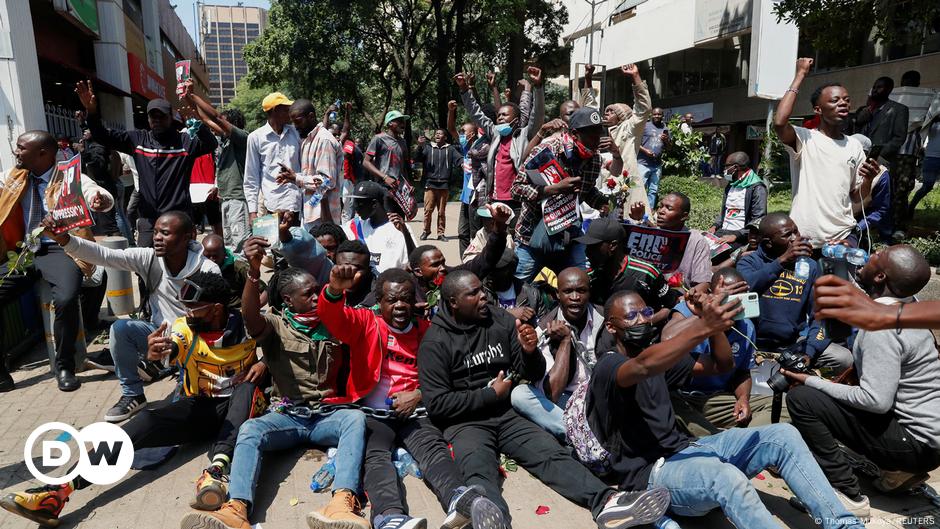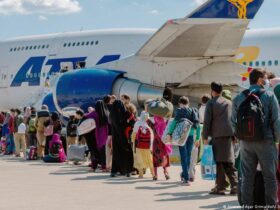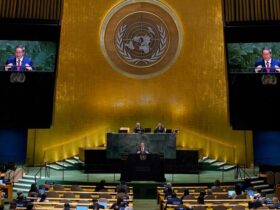Kenyan youth demanding a stronger economy and a brighter future have been clashing with government forces in protests since June.
Violence on the streets of Nairobi and other parts of the country has largely reduced in recent months following a number of symbolic initiatives by President William Ruto. But the story of the young protesters is far from over:
What many did not anticipate was that, months later, protesters would find themselves still fighting for their freedom and safety – perhaps even more than before.
At least 82 Kenyans have gone missing since Gen-Z protests began in June, with six reportedly abducted in the past two weeks.
Strategic Pattern Behind Kidnapping
The missing are believed to be in the custody of security agents, although police have denied any involvement in kidnappings.
George Musamali, a security analyst and former national security agent, told DW that politically motivated kidnappings are not a new phenomenon in the region.
“About a month ago, we saw the kidnapping of Ugandan politician Kizza Besigye, who was deported back to Uganda [from Kenya]Similarly, there were cases of Turkish people who were kidnapped in Kenya and deported back to Türkiye. “This is a worrying trend that demands answers,” he said.
The disappearances appear to reflect a strategic pattern, targeting individuals who have been critical of the government, particularly those who have voiced their opposition on social media platforms such as Facebook.
“Many of these people were prominent figures in the June protests,” Musamali said.
Political analyst and activist Jim India told DW that despite denials of involvement by police and the government, credible sources have suggested that law enforcement officers played a role in the detentions.
India said, “Historically, especially during protests, detainees have been released by police, creating a clear link between kidnappings and law enforcement.”
More protests, more arrests
On Monday, Kenyans held a protest demanding the release of six recently kidnapped individuals: Gideon Kibet, Bernard Kavuli, Peter Muteti, Billy Mwangi, Ronnie Kiplangat and Steven Kavingo.
Police responded to the rally by firing tear gas at protesters and arresting several people, who were scheduled to appear in court the next morning.
India said that, while the latest arrests were being heard, the case of the six missing persons was being heard in another court after the Law Society of Kenya filed an application demanding that the police or So produce the missing persons or keep them with you. The Inspector General of Police appeared in the court.
Neither the Inspector General nor the missing persons were produced in court, as their distressed parents were seen demanding answers about their whereabouts.
In a separate courtroom, 14 people detained during the protest were charged with unlawful assembly and inciting violence.
The Director of Public Prosecutions requested the group be detained for 14 more days and granted access to their mobile phones and social media accounts for investigation purposes.
The court rejected this request and released the prisoners on bail.
echoes of the past
India considers the release of the 14 protesters as an important victory, as it demonstrates the fact that the courts can still be trusted to uphold the law.
He said this could lead to protests leading to the release of the six missing people.
Musamali, drawing on his experience in national security, said that the mystery surrounding the current situation reflects past practices, in which security officials were “hand-picked” and received instructions directly from the government, bypassing police command structures. Were.
“In those years, we had a police commission and a group called ‘Special Branch’ which worked outside the police command,” Musamali said. “We are seeing a recurrence of this, where individuals may be receiving instructions from outside the police command, which is why the Inspector General of Police cannot respond.”
There is now growing concern among Kenyans that these abductions are not only a violation of political rights, but also pose a serious security threat in their own right in the long term.
Implications for national security
The main concern is that the current environment, marked by harsh responses to protests, kidnappings and a lack of accountability by authorities, could undermine trust in government institutions.
India said, “This is very risky in terms of national security. It divides people politically, which could lead to the same kind of violence that we saw in the post-election clashes of 2007/2008.”
“This could lead to a situation where police and citizens would become hostile towards each other, potentially leading to a ‘gang-like’ situation,” he said. “Citizens may feel forced to defend themselves against authorities they no longer trust, resulting in chaos.”
“When people start taking orders from outside sources instead of centralized command, it creates a threat,” Musamali said.
India said that when the government is seen as the primary culprit acting against its own citizens, those citizens will lose confidence in it.
He called on the government to uphold the rule of law, which he believes is the only way to restore stability and avoid further tensions.
Meanwhile, the situation in Kenya remains uncertain, and many fear it could deepen into continued unrest.
Edited by: Serton Sanderson






Leave a Reply